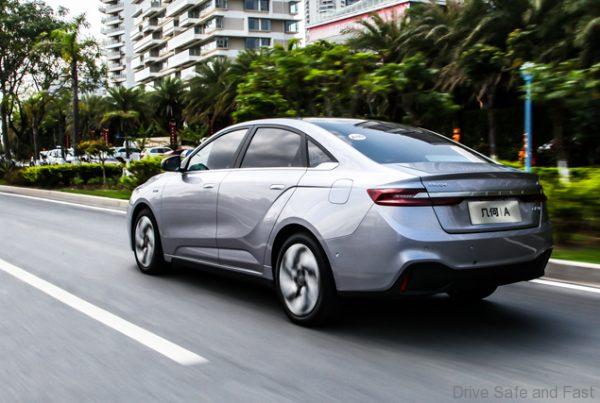This will be bigger than the Tesla Panasonic Gigafactory
The Zhejiang Geely Holding Group has just shared news this week on Monday that it would be building an electric vehicle battery factory with a planned annual manufacturing capacity of 42 gigawatt hours (GWh) in China’s eastern city of Ganzhou. For comparison, the Tesla-Panasonic Gigafactory in Nevada announced an expansion last fall to just under 40 gigawatt hours.
This news comes as Geely and its many other vehicle brands expand their electric vehicle (EV) lineup in the world’s biggest car market, China.

Zhejiang Geely Holding Group in September launched its first electric vehicle-focused platform which was designed to allow a roll-out out a variety of models more efficiently for both Geely and its partners. Geely’s Sustainable Experience Architecture (SEA) will be able to support small as well as large vehicles, including sedans, SUVs, vans and pickup trucks.
The total investment in the project by Geely’s technology arm will be 30 billion yuan (USD4.6 billion), according to a separate statement from the local government. Geely’s technology group has previously invested in Ganzhou-based EV battery maker Farasis. Farasis Energy, Inc. created in California in 2002 is a company specialized in the conception and distribution of batteries. Present in China (headquarters), in the Silicon Valley (R&D center), and in Europe, the Group is one of the world leaders in his sector.

In December last year Farasis Energy (Ganzhou) Co., Ltd. (Farasis Energy) announced that it signed an agreement with Geely Technology Group Co., Ltd. (Geely) to partner in the power battery business.
Earlier, in July 2020, Mercedes-Benz announced its strategic partnership and equity stake in Farasis.

The planned factory comes after Geely announced a flurry of tie-ups in January aimed at turning the automaker into a leading EV contract manufacturer and engineering service provider.
Geely, which owns Volvo Cars and a 9.7 percent stake in Daimler AG, is competing with Great Wall, BYD, Tesla and Nioto capture the fast growing EV market in China and Europe.

Geely sold more than 2 million vehicles last year and this Chinese car manufacturer will develop vehicles based on their SEA architecture under nine brands including Geely, Volvo, Smart and Lynk & Co.
China’s government has heavily promoted new energy vehicles (NEVs) such as battery-powered, plug-in petrol-electric hybrid and hydrogen fuel cell cars in response to chronic air pollution, spurring interest from technology companies and investors alike.
China forecasts NEVs will make up 20 percent of its annual auto sales by 2025 from around 5 percent in 2020.